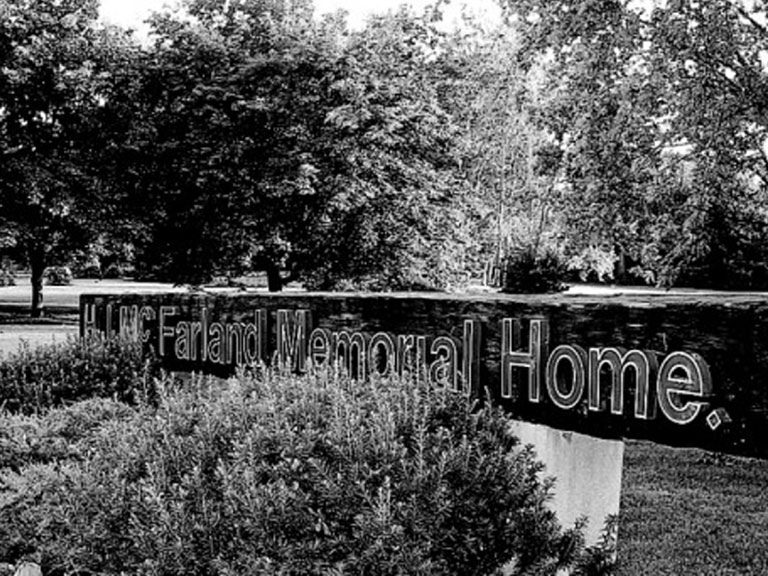County News
Downloading revisited

More of the $100 million McFarland redevelopment costs to fall on County residents
Acouncil committee gave the green light to another big capital project last week—this time for the redevelopment of H.J. McFarland long-term care home in Picton. Building cost alone is estimated at $95 million for a new 160-bed facility. County residents must pick up at least $34 million of the cost—plus cost overruns and debt-carrying costs— through their property taxes. This means a permanent increase to the operations budget of at least $5.7 million annually— implying an 11 per cent increase to tax levy—for 25 years.
At various stages over the laboured history of this project, the Province was expected to pick up the bulk of the cost of the new long-term care home. Funding opportunities came and went. Deadlines were too tight. The current provincial offer is for about $60 million to be paid out in monthly installments over 25 years. This is significant because the municipality is on the hook to borrow this money from the province’s Infrastructure Ontario at a rate estimated to be 5.1 per cent. County taxpayers will be on the hook for interest on this money.
But there’s a catch: The Province has added another time fuse to half of its contribution to the new home. The County must be shovel-ready by November 8, or it will lose $29.2 million of its funding from the province.
CAO Marcia Wallace explained to Council that while it was a tight schedule, she felt it was doable. She added that senior leadership would return to council in July with a clearer picture of its prospects for meeting this timeline.
“We will come back before we issue a tender,” assured the CAO, suggesting perhaps one last exit ramp.
Another critical question didn’t have a ready answer. Since the province is contributing less money than indicated, the County might consider building a smaller, more affordable home. The existing H.J. McFarland home consists of 84 beds. The current plan is to build a much larger facility to accommodate 160 residents—84 current residents plus 76 beds that were lost when Picton Manor was closed 12 years ago.
According to McFarland administrator Kyle Cotton, H.J. Mc- Farland is at the end of its useful life. Current provincial standards require that the new facility accommodate “additional space, programs equipment, staff and specialized staff.”
But why 160 beds? The province requires the municipality to operate a longterm care home in this community. Ameliasburgh councillor Roy Pennell wanted to know how many beds were needed to fulfil this requirement.
“How many beds are we obligated to build?” asked Pennell. “Are we obligated to build bigger?
Cotton said he didn’t know the answer to Pennell’s question. It was a disappointing response, given the project that has been in the planning stages for half a decade. When asked about a potential hybrid model in which the municipality redeveloped 84 beds and a private developer built 76 beds, Cotton explained, “We have not explored that option. The ministry is expecting us to build a 160-bed home.”
CAO Wallace narrowed the debate, pointing to the proposal on the table and the deadline in front of them. “Are we in, or are we out?” said Wallace. “There are a lot of moving pieces.”
South Marsyburgh councillor John Hirsch was uncomfortable with the shifting position of the province.
“We’d all like to double the size of the home,” said Hirsch. “However, the promise of a home by the province has turned into a tremendous amount of cost to be borne by the municipality.”
Mayor Steve Ferguson echoed Hirsch’s lament.
“Rural communities are all struggling. Nineteen municipalities are in the same situation we are, trying to figure out how to pay for them, on top of road infrastructure, on top affordable housing, on top of any number of things. This is a big problem.”
He assured his colleagues that the Eastern Ontario Warden’s Caucus was taking these messages to the province.
But the County’s manager brought the discussion back to earth.
“Every increase to the tax levy is a burden to taxpayers who really can’t carry it,” said Wallace. “The fight isn’t over, but we have to be realistic.”
Realistic in this context means that if Council didn’t approve the current plan, the provincial funding offer was off the table, and the next one might be worse.
Councillor Janice Maynard was eager to get going.
“Yes, this is going to put pressure on our budget,” said the Ameliasburgh councillor, “but this is a core responsibility of this municipality. We absolutely have to support it.”

Comments (0)